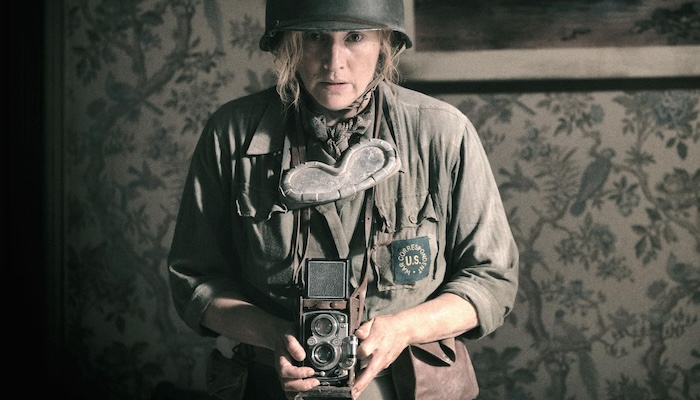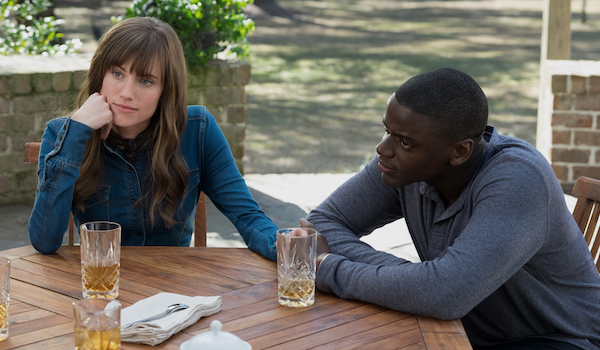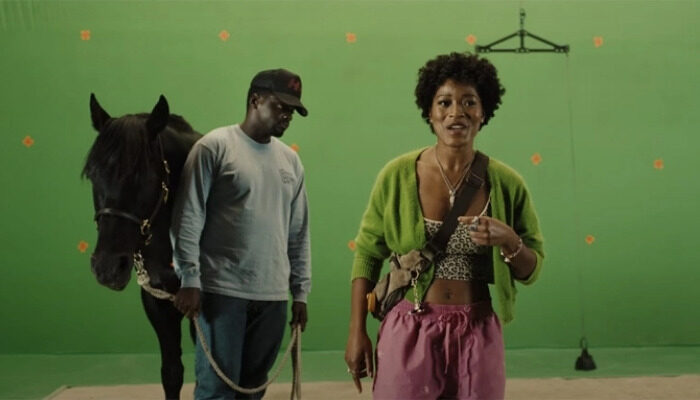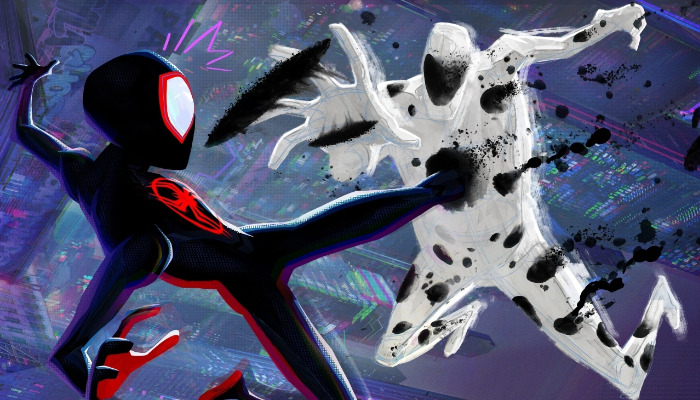Film Review: GET OUT (2017): A Successful & Unique Blend of Drama, Horror, and Comedy
Get Out Review
Get Out (2017) Film Review, a movie directed by Jordan Peele, and starring Bradley Whitford, Allison Williams, Daniel Kaluuya, Betty Gabriel, Caleb Landry Jones, Lyle Brocato, Ashley LeConte Campbell, Marcus Henderson, LilRel Howery, Gary Wayne Loper, Jeronimo Spinx, Geraldine Singer, Jack Teague, and Jana Allen.
Like the film’s main protagonist, Get Out‘s beguiling plot, increasingly strange occurrences, and antagonists drew the viewer in until it was too late. The viewer became fully invested in the piteous plight of the main character before the situation turned from good to bad. In modern horror films, its the horrific acts, the film’s specter, or situation that is the main character in the film e.g. The Conjuring. In Get Out, the viewer was given two and a half acts to get to know not only the protagonist but the main antagonist (to a certain extent before a mental switch in her head was flipped) and snippets of the secondary antagonists as well. Because of the main antagonist, the secondary antagonists, and the film’s plot, Get Out achieved something that few horror movies ever achieve anymore – originality.
Get Out began as a modern romance between an interracial couple full of micro fights for equality, stereotype breakage, defiance, and taking the higher road.
Through all of it, Chris Washington (Daniel Kaluuya) and Rose Armitage (Allison Williams) were by each others’ side. Rose always had Chris’ back through physically trying times (e.g. the cop scene) and emotional ones (e.g. when Chris spoke about his mother dying). Rose was the type of companion and friend that a person wished for in their search for a significant other. A person that you could expose your deepest regrets to, someone whose words and presence gave you solace.
Those significant other actions on Rose’s part, coupled with her true nature, made her the second best element of Get Out. I have never seen a psychopath act like a feeling human being as well as Rose did in Get Out. She became as emotionless as John Doe in Se7en once her family’s prey had been ensnared. Rose was able to compartmentalize her feelings and put them away (or access them), like toys on a shelf, whenever she choose.
With no emotion on Rose’s face (it resembled a calm, flat palette that sentiment had never touched) during the third act of Get Out, the viewer watched as Rose outsmarted her foe on the telephone. The viewer also watched Rose in her immaculate room, adorned with boyfriend / girlfriend pictures (i.e. a trophy wall that showcased how disturbed she was), trolling the Internet for her next target. These were character building moments that villains in horror films are rarely afforded.
Because of those moments, Rose and her family generated tantalizing questions in the viewer’s mind while viewing Get Out. Some of those questions included: how had Rose been created (the nature vs. nurture quandary)? How had any of the monsters in the film been created? How did they all find each other (the family and the friends of the family – their clients)? None of these questions were answered by the time the film ended but there mere existence bespoke of the quality of Get Out‘s script.
Get Out successfully used the “other” fear to its maximum advantage i.e. “those people” are other than us therefore they do not deserve the same type of respect. “They” don’t deserve the same type of life. “They” don’t deserve a full life. Get Out took the “other” fear, in all of its variations, and capitalized on them. Through that conduit, Get Out broached a new type of human trafficking. A horrific form of slavery where the owner of a slave “wore” that slave as if the newest fashion ensemble. Horror films have a troupe that some refer to as “the turn” moment, where the hero or heroine discovers the diabolical killer stalking them for the first time (e.g. Halloween) or the antagonist’s plan for them once ensnared (e.g. Saw). As a connoisseur of horror classics and the latest and greatest in the genre, nothing prepared me for “the turn” in Get Out. Like in Martyrs, I never saw “the turn” in Get Out coming and when it landed, it was hard to believe in all of the right ways.
Get Out was a movie built for multiple viewings and for afterthought once the film had ended e.g. the old or antiquated words that Georgina (Betty Gabriel) and Walter (Marcus Henderson) used. Red Herrings like those perfectly made sense upon reflection and it showed how fine-tuned and thought-out the script for Get Out truly was.
Also finely-tuned was director Jordan Peele’s lens. The camera work during Georgina’s odd character moment during Get Out‘s second act was as if Peele had taken a class in marquee horror scene filming. Peele created an increasing eerie film segment as Georgina stepped closer and closer to Chris as her comments (e.g.”Snitch?”, “Tattle-tail”), conduct (the true Georgina wanted to speak out but couldn’t), and restrained emotions grew stranger and stranger. It was a fantastic moment in the film.
The second and thirds acts of Get Out made this horror film. Those sections of the film housed strange occurrences (e.g. the hypnosis scene – a visually brilliant element in the film and a good one narrative-wise), odd characters (e.g. the servants of the Armitages), touching moments (e.g. Chris confessing to Rose), the unexpected in large doses (e.g. Rose’s true nature and the aforementioned slavery) and segments of absolute hilarity.
Rod Williams (LilRel Howery) was at the nexus of those humorous moments in Get Out. Though paranoid and given to flights-of-fancy, Rod was the designated comic relief but he was also a plot motivator. Unlike Deputy Winston in Cabin Fever, whose presence grinded that film down, Rod had a positive and beneficial influence on Get Out‘s narrative.
That included the films’ ending, which held an ingenious head fake borne of an incident from the film’s first act. Because of that and all factors that have been mentioned, Get Out was one of the most unique and satisfying films released thus far in 2017.
Rating: 10/10
Leave your thoughts on this Get Out review and the film below in the comments section. Readers seeking more film reviews can visit our Movie Review Page, our Movie Review Facebook Page, and our Movie Review Google+ Page. Want up-to-the-minute notifications? FilmBook staff members publish articles by Email, Twitter, Tumblr, Google+, and Facebook.
Related Articles
FilmBook's Newsletter
Subscribe to FilmBook’s Daily Newsletter for the latest news!













